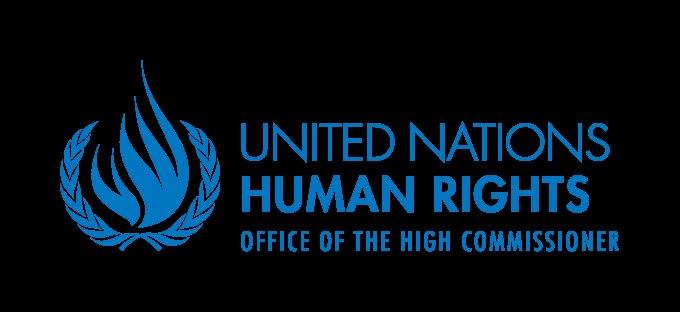Office of the United Nations High Commissioner for Human Rights
See gender-related resolutions and decisions of the General Assembly, Security Council and Human Rights Council, and relevant subsidiary bodies.
The Office of the United Nations High Commissioner for Human Rights (OHCHR), guided by the mandate provided by General Assembly resolution 48/141, OHCHR represents the world’s commitment to the promotion, protection and realization of the full range of rights and freedoms set out in the Universal Declaration of Human Rights.
OHCHR has a central role in safeguarding the integrity of the three pillars of the United Nations: peace and security, human rights and development. For the four year period from 2018-2021, the Office has identified six thematic pillars, four major shifts, with person centered spotlighting particularly women, young people and persons living with disabilities. The six thematic pillars that
from the continued solid base on which the work of the Office stands include (1) Support to the United Nations human rights system; (2) Mainstreaming human rights within the United Nations other pillars, namely development and (3) peace and security; (4) Advancing the core human rights principles of non-discrimination, (5) accountability, (6) participation. The Four major ‘Shifts’ in OHCHR mandate focus on key threats to rights and key opportunities for leveraging support to better protect and promote rights. This means that across our six thematic pillars, OHCHR will also work to take steps to help prevent conflict, violence and insecurity; Help protect and expand civic space; Support and further develop a global constituency for human rights; Deliver human rights in the context of emerging concerns (‘frontier issues’).
All the six areas have a strong focus on women’s human rights and gender issues, including in line with OHCHR internal policies on gender equality and the Secretary General System Wide Strategy on Gender Parity.
Institutionally, OHCHR is committed to strengthening the United Nations human rights programme and to providing it with the highest quality support. OHCHR is committed to working closely with its United Nations partners to ensure that human rights are at the center of the work of the United Nations.
Report on laws discriminatory to women, prepared by Dr. Fareda Banda, 2009
Commentary on the Recommended Principles and Guidelines on Human Rights and Human Trafficking
Palais Wilson. 52 rue des Pâquis. CH-1201 Geneva, Switzerland
The mission of OHCHR is to work for the protection and promotion of all human rights for all people; to help empower people to realize their rights; and to assist those responsible for upholding such rights in ensuring that they are implemented. In carrying out its mission with respect to violence against women, and within the overarching strategies to ensure country engagement, leadership, partnership, and support and strengthening of the Office and the human rights machinery, OHCHR is focusing on:
*Gender sensitive administration of justice, through the provision of expert legal analysis of international (and, where appropriate, regional and national) jurisprudence with commentary, relating to the effective prosecution of gender-based violence as well as legal analysis of obligations in relation to social and economic rights and the impact of the enjoyment of such rights for women on access to justice for victims of sexual violence.
*Piloting of integrated and thematic gender strategies for country engagement, including on violence against women.
*Mainstreaming gender and women’s human rights in OHCHR and with UN system partners.
OHCHR is an active member of UN Action against sexual violence in conflict. Since August 2008, the Coordinator for UN Action Against Sexual Violence in Conflict, previously based with UNIFEM in New York, is hosted on OHCHR premises in Geneva. Since 2009, OHCHR has chaired the Resource Management Committee of the UN-Action Multi-Donor Trust Fund.
Human rights monitoring and investigations, including in relation to sexual violence, are also key features of the field presences of the Office of the High Commissioner for Human Rights (OHCHR), particularly country offices and human rights components of UN peace operations.
Monitoring of the human rights situation, including advocacy and public reporting, is a fundamental tool for OHCHR to assess human rights problems, support the identification of adequate solutions, promote accountability and deter further violations. In particularly serious human rights violations including collective rape cases, the Office also conducts human rights investigations, by conducting detailed interviews with victims and witnesses, when possible visiting the location of the violations, and undertaking circumstantial analysis of facts, mapping of perpetrators to promote accountability through follow up with judiciary authorities.
OHCHR supportsthe Human Rights Council and its special procedures, including the Special Rapporteur on violence against women, its causes and consequences, the Working Group on discrimination against women in law and in practice, and the Special Rapporteur on trafficking in persons, especially in women and children, as well as human rights treaty bodies, including the Committee on the Elimination of Discrimination against Women.
In its’ work, the Committee on the Elimination on the Discrimination against Women (CEDAW) urges States parties to give priority attention to eliminating all forms of violence against women and to adopt comprehensive measures to address it in accordance with the Committee’s general recommendation No. 35.
